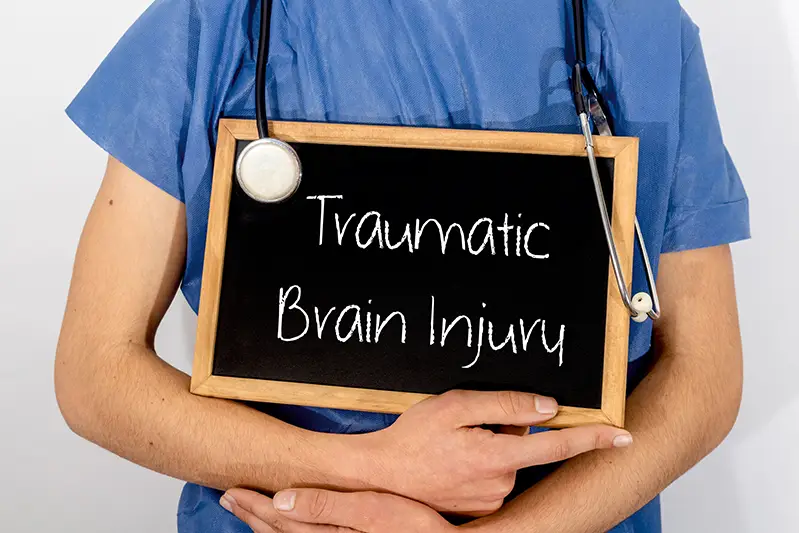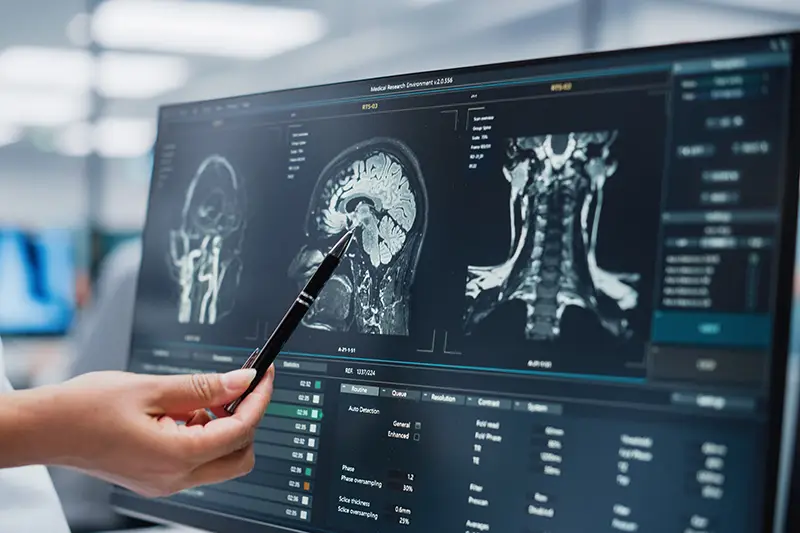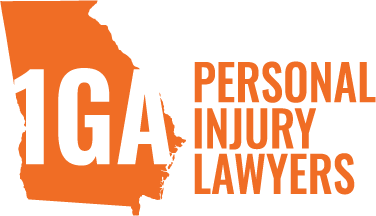Understanding a Traumatic Brain Injury and Its Impact
A traumatic brain injury (TBI) occurs when an external force causes damage to the brain. This can happen due to various incidents, such as falls, motor vehicle accidents, or sports injuries. The severity of a TBI can range from mild concussions to severe traumatic brain injuries that may lead to permanent brain damage.
When an individual suffers a TBI, the brain tissue can become bruised or damaged. This damage may disrupt normal brain function, affecting various cognitive and physical abilities. Common symptoms include headaches, dizziness, confusion, and changes in sleep patterns. In some cases, symptoms can worsen over time, leading to additional complications, especially in cases of mild TBI where proper monitoring and prevention of further injury are crucial.
TBIs are categorized into different types based on their severity. Mild TBIs, often referred to as concussions, may only require rest and monitoring. However, moderate or severe TBIs can result in significant challenges, including neurological disorders and loss of consciousness. Severe traumatic brain injury can lead to long-lasting changes in cognitive and physical abilities, necessitating extensive medical evaluation and rehabilitation. Immediate medical attention is crucial for anyone experiencing symptoms after a traumatic event.
Understanding TBIs is essential for victims and their families. It helps to recognize the signs and seek appropriate medical care. Furthermore, being informed can guide individuals in exploring legal options for compensation related to their injuries. If you or a loved one has experienced a TBI, it is vital to consult with a qualified attorney who specializes in brain injuries to navigate the complexities of your case.
Common Causes of Traumatic Brain Injuries
Traumatic brain injuries (TBIs) can occur in various ways, often resulting from unexpected incidents. Understanding these causes is crucial for prevention and awareness.
Motor Vehicle Accidents: A Leading Cause of TBIs
Motor vehicle accidents are among the most prevalent causes of TBIs. Collisions can lead to severe head injuries, whether from the impact of a crash, being struck by debris, or sudden stops. The force of a car accident can cause the brain to collide with the skull, resulting in damage to brain tissue. This type of blunt force trauma can lead to a range of symptoms, from mild concussions to severe traumatic brain injuries.
Falls, Sports, and Other Accidents Leading to Brain Injuries
Falls are another major contributor to TBIs, particularly among older adults and children. A simple slip and fall can result in a closed head injury that impacts brain function. Additionally, sports-related injuries, especially in contact sports, can lead to mild TBIs or more serious conditions like concussions. Other accidents, such as those occurring in the workplace or at home, can also result in brain injuries. Shaken baby syndrome is another serious cause of TBI, particularly in infants, resulting from rapid acceleration and deceleration of the brain.
Being aware of these common causes can help individuals take precautions to protect themselves and others from potential harm. If you or someone you know has suffered a TBI due to an accident, seeking immediate medical attention is essential for proper diagnosis and treatment.
Recognizing Symptoms of Traumatic Brain Injuries
Traumatic brain injuries (TBIs) can manifest in various ways, depending on the severity and nature of the injury. Recognizing the symptoms is crucial for timely medical intervention and effective treatment.
Mild TBI Symptoms
Mild traumatic brain injuries, often referred to as concussions, may not always present immediate symptoms. However, common signs include:
- Headache
- Dizziness or balance issues
- Nausea or vomiting
- Blurred vision
- Sensitivity to light or noise
- Difficulty concentrating or remembering
- Fatigue or drowsiness
In some cases, individuals may experience changes in mood or behavior, such as irritability or anxiety. These symptoms can vary from person to person and may worsen over time.
Moderate to Severe TBI Symptoms
Moderate to severe TBIs, especially severe injuries, can lead to more pronounced and serious symptoms. Individuals may experience:
- Persistent headaches
- Repeated vomiting or nausea
- Convulsions or seizures
- Loss of consciousness lasting more than a few minutes
- Clear fluid draining from the nose or ears
- Inability to wake up or stay awake
- Severe confusion or disorientation
- Weakness or numbness in the limbs
These symptoms indicate a more serious condition that requires immediate medical attention.


The Long-Term Impact of Traumatic Brain Injuries
Traumatic brain injuries (TBIs) can have profound and lasting effects on a person’s life. The consequences extend beyond immediate physical injuries. They often lead to a variety of cognitive, emotional, and physical challenges that can alter daily living.
Cognitive, Emotional, and Physical Challenges
Individuals suffering from TBIs may experience cognitive difficulties, such as memory loss, trouble concentrating, or impaired problem-solving skills. Occupational therapy is an essential part of rehabilitation for helping individuals regain the ability to perform everyday tasks. These challenges can hinder a person’s ability to perform at work or manage daily tasks. Emotional struggles are also common.
Victims might face mood swings, anxiety, or depression, which can strain relationships with family and friends. Physical challenges can range from persistent headaches and fatigue to more severe issues like balance problems or difficulty with coordination. These symptoms can vary widely, making it crucial for individuals to seek medical attention and ongoing support.
Financial and Lifestyle Implications
The financial impact of a traumatic brain injury can be significant. Medical bills can accumulate quickly, especially when surgery, rehabilitation, or long-term care is necessary. Additionally, victims may find themselves unable to work, leading to lost wages and financial strain. Lifestyle changes may also be required. Adjustments might include modifications to the home or changes in daily routines to accommodate new challenges.
The combination of these factors can create a heavy burden for both the injured person and their family. Understanding these long-term implications is essential for anyone affected by a TBI. Seeking legal advice can help navigate the complexities of recovery and compensation.
Legal Options for Traumatic Brain Injury Victims
If you or a loved one has suffered a traumatic brain injury (TBI), understanding your legal options is crucial. Victims of TBIs often face overwhelming medical bills, lost wages, and emotional distress. Pursuing a personal injury claim can help alleviate some of these burdens.
Pursuing a Personal Injury Claim for TBI
A personal injury claim allows you to seek compensation for the damages you’ve incurred due to someone else’s negligence. This could stem from a car accident, a fall, or any incident that resulted in a brain injury. Establishing liability is essential. You must demonstrate that another party’s actions directly caused your injury. Gathering evidence, such as medical records and witness statements, is vital in building a strong case.
Seeking Compensation for Medical Expenses and Lost Wages
Medical costs associated with TBIs can be significant. This includes hospital stays, surgeries, rehabilitation, and ongoing therapy. Additionally, if your injury has resulted in missed work, you are entitled to compensation for lost wages. Documenting these financial losses is critical. It can help you recover the full extent of your damages.
Non-Economic Damages: Pain, Suffering, and Loss of Enjoyment
Beyond medical expenses and lost wages, traumatic brain injury victims can claim non-economic damages. These damages account for the pain and suffering endured due to the injury. They also consider the loss of enjoyment of life, which can be profound after a TBI. This aspect of your claim requires careful consideration and often the testimony of medical professionals to illustrate the injury’s impact on your quality of life.
In summary, legal options are available for TBI victims. Understanding the avenues for pursuing compensation can make a significant difference in your recovery process. Consulting with a knowledgeable attorney can provide clarity and guidance as you navigate this challenging time.
Overcoming Challenges in Disability Claims
- 1. Common Reasons for Denial and How to Address Them - Many claims face denial due to insufficient medical evidence or incomplete applications. Understanding these common pitfalls is crucial, as addressing them early can save time and frustration.
- 2. The Importance of Accurate Medical Documentation - Your medical records are vital to your claim. Ensure they clearly outline your impairments and how they limit your activities. Strong and detailed documentation will play a key role in the success of your claim.
Navigating the disability benefits process takes diligence and attention to detail. By following these steps and being aware of potential challenges, you can enhance your chances of securing the benefits you need.
The Long-Term Impact of Permanent Disability
Financial Implications and Living Expenses
Living with a permanent disability can significantly alter your financial landscape. Differentiating between impairment, disability, and handicap is crucial, as a functional limitation refers to the restrictions placed on an individual’s ability to perform activities due to their impairment. Many individuals face increased living expenses due to ongoing medical care, assistive technology, and necessary home modifications. Understanding the national average for disability benefits is crucial. These benefits are designed to provide some financial relief, but they often fall short of covering all expenses associated with a disability.
It is essential to plan for ongoing medical costs and daily living expenses. This planning will help you maintain a stable financial situation in the long run. You may need to explore additional resources or support systems to supplement your income.
Why You Need a Traumatic Brain Injury Lawyer
Recovering from a traumatic brain injury (TBI) is challenging enough without facing insurance companies and complex legal procedures alone. An experienced traumatic brain injury lawyer understands the serious impact a TBI can have on your health, finances, and future, and knows how to fight for the full compensation you deserve.
The right attorney will evaluate your case, gather strong evidence, and work with medical experts to prove the extent of your injuries. They’ll negotiate aggressively with insurance companies to prevent lowball offers and, if necessary, take your case to court to secure a fair outcome. Throughout the process, your lawyer will protect your rights, explain your options, and handle every detail so you can focus on healing.
With a dedicated traumatic brain injury lawyer on your side, you’ll have the advocacy and expertise needed to turn a difficult situation into the best possible result.
How to Get Started with Your Traumatic Brain Injury Claim
Navigating life after a traumatic brain injury can be overwhelming. At 1Georgia Personal Injury Lawyers, we’re here to guide you every step of the way.
- Gather medical records – Include injury details, treatments, and ongoing therapy notes. These are essential for building your case.
- Act quickly – Georgia law gives you only two years from the incident to file a claim. Waiting could cost you your right to compensation.
- Schedule a free consultation – We’ll review your case, explain your legal options, and outline the next steps.
- Let us investigate – Our team identifies liable parties, collects evidence, and builds a strong case—whether your TBI resulted from a car crash, fall, or workplace accident.
- Pursue full compensation – We fight for coverage of medical bills, lost income, and pain and suffering so you can focus on recovery.

Why Choose 1Georgia Personal Injury Lawyers?
When you’re recovering from a traumatic brain injury, the right legal team can make all the difference. At 1Georgia Personal Injury Lawyers, we combine proven results with compassionate client care.
- Proven TBI case results – From concussions to severe brain injuries.
- Deep legal and medical knowledge – Backed by the latest research.
- Custom case strategies – Built for your specific situation.
- Compassionate support – We listen and guide you through recovery.
- Relentless advocacy – In negotiations and in court.
- Client-focused approach – You heal, we handle the rest.
Choosing 1Georgia Personal Injury Lawyers means having a team that fights for your rights and your future.
Contact Us for a Free Consultation
If you or a loved one has suffered a traumatic brain injury, it’s crucial to seek help as soon as possible. At 1Georgia Personal Injury Lawyers, we understand the complexities surrounding TBIs and the impact they can have on your life. Our team is dedicated to providing you with the support and guidance you need during this challenging time.
We offer a free consultation to review your situation, answer your questions, and explain your legal options. This meeting helps us understand the specifics of your case—such as how the injury occurred, the medical care you’ve received, and any ongoing symptoms—so we can determine the best strategy to seek compensation for your medical bills, lost wages, and other damages. Our experienced attorneys will walk you through the personal injury claim process, outline what to expect, and provide the clarity and reassurance you need during this challenging time.
Don’t wait to take action. The sooner you contact us, the sooner we can begin working on your case. Remember, you don’t have to face this alone. Reach out to 1Georgia Personal Injury Lawyers today for your free consultation.
Let us help you secure the compensation you deserve for your traumatic brain injury (800) 800-8000.

